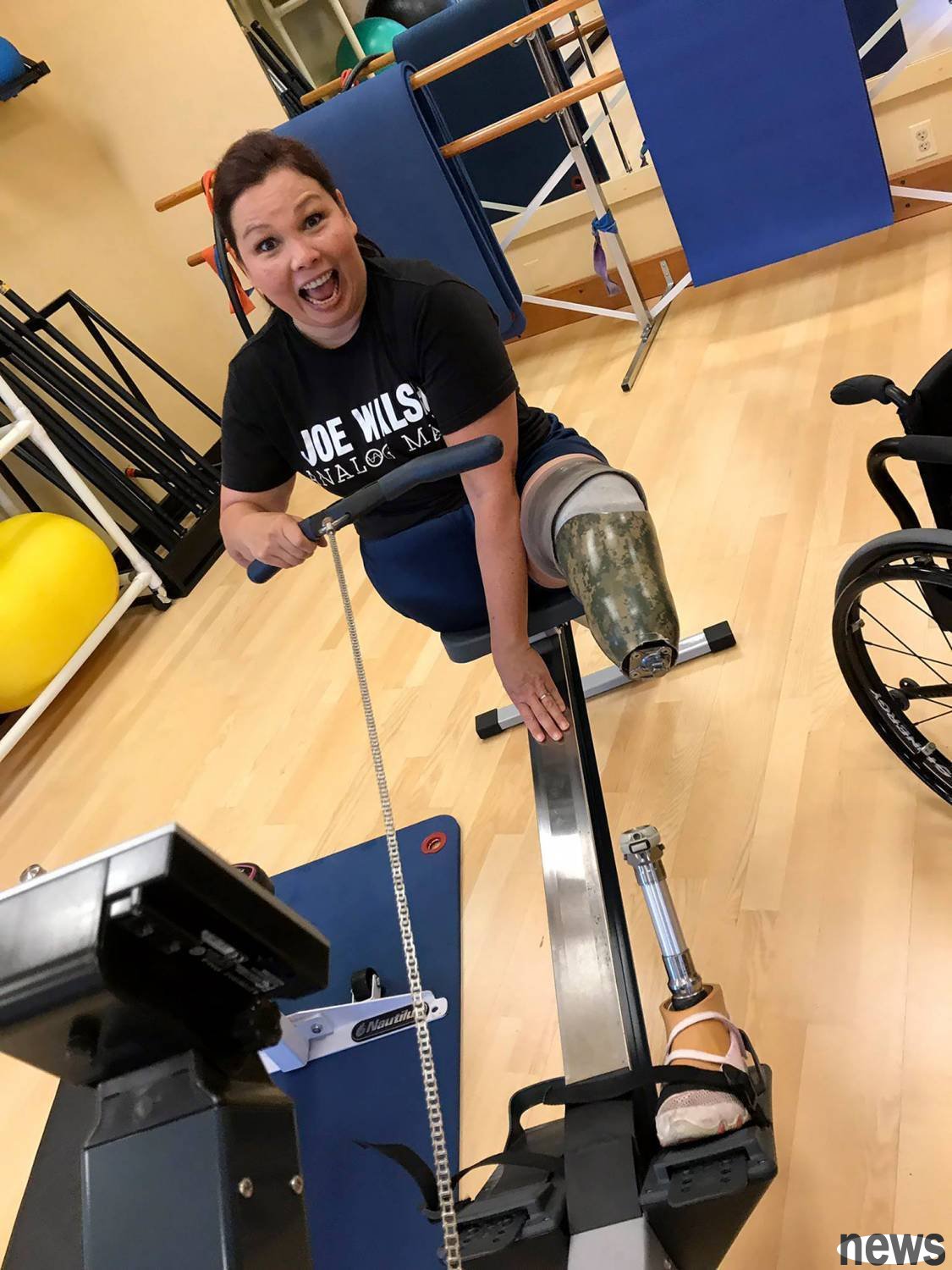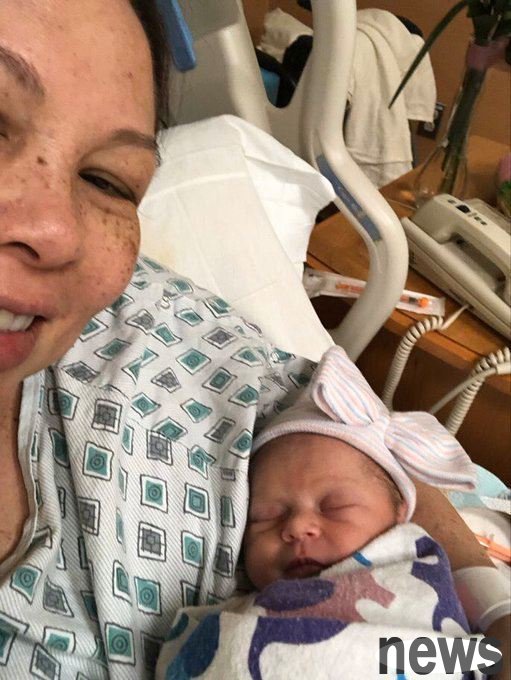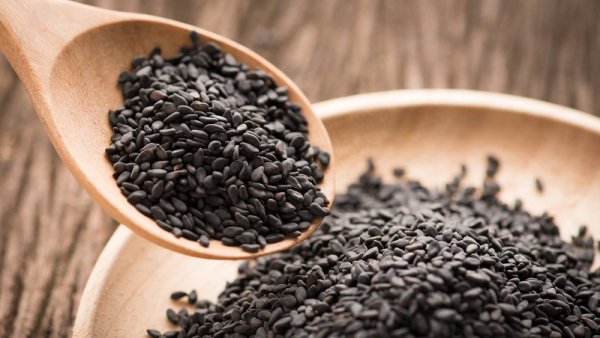He lost both legs at the age of 36 and gave birth to a daughter at the age of 50! US participants visit the station to send vaccines: Every day I live, I must be worthy of the person who saved me

Some media commented on the tortuous life of the US Federal Party member Ladda Tammy Duckworth: "If her life story is made into a movie, the audience will definitely believe that this is a virtual situation." Among the three US Federal Party members who visited Taiwan a few days ago, Sakum Dammy Duckworth attracted the greatest attention.
Taiwanese were not familiar with her in the past, but when President Biden of the United States first chose the deputy, she was as loud as the winner. In the end, because of the fact that the "place of birth" was in Thailand, Biden's concern was taken as an article and blurred the focus, which made her fail.
During this visit to Taiwan, Darkworth said in his speech that because of her family background, she thought of coming to Taiwan. Dakworth possessed the blood of the Chinese. In order to escape the CCP's rule, her mother's family walked out of China on foot, looking for freedom, and fled all the way from Chaozhou, Guangdong to Thailand; Dakworth's father was a professional soldier, participated in the Second World War and Vietnam War, and fought against freedom and democracy many times.
Because of this special background, she believes that being able to come to Taiwan to support another democratic society has a great meaning for her.
American participant Darkworth was born in a difficult situation and was discriminated from childhood
Darkworth's parents met in Bangkok, and Darkworth was born in Bangkok. She ran around with her retired father Dong since she was a child. In order to find a better salary job, their family stayed in Thailand, Indonesia, Singapore, Malaysia, Laos and other places. Darkworth was dissatisfied with her family because of poor economic conditions and her father was American, and she was dissatisfied since she was a child, and even her own family was dissatisfied with her.
When she was in Thailand, her cousins would laugh at her father for having a cheese flavor. "If you have been to Southeast Asia, you know, especially older people, they all think that foreigners have a cheese flavor." Darkworth recalled how his parents made this joke.
When she was three to four years old, she felt even more sensible. When she heard that her father was going to return to the United States and could not bring her and her mother at a moment, her first reaction was to check how much rice there was left at home.
When she was a teenager, she relied on selling flowers. I don’t know where the next meal will be. When she grew up, her father finally came to Hawaii with her family, she was crazy about looking for money and selling flowers to get the family’s meals on the way.
She recalled: "When I was 15, I worked harder than I am now. I looked for money in the garbage dump, wanted to do various side jobs, and my workload was bigger than other times in my life, and the same was true for my parents."
One of the jobs she did was to sell roses on the street. "Many people think that Hawaii is paradise, but at that time I was hoping to earn a dollar a day, so that my brother and I would have a meal the next day."
In high school, she was able to complete her studies with various rescue plans and teachers' assistance. Her high school teachers in Darkworth often took her to dinner, and the school also had breakfast and lunch plans to care for weak students.
She recalled that if it weren't for the assistance: "I shouldn't have finished high school, I might not have grown into a bad person, but I probably would never have been able to complete high school, nor could I go to college, and do two jobs with minimum wages. Of course, it would be impossible to join the army and become a member of the United States."
The army's talent employed people made Darkworth deeply fascinated
Because she tasted from childhood to being discriminated and hard-working, these adversities made her deeply fascinated by her generation, and she was more passionate about her generation than anyone else.
She said, "Although this sounds strange, the army is a place where people are talented. Even if I am a young Asian girl, the point is that I am not very accurate in shooting targets."
However, fate did not let her go.
When she was 36, during a battle with the Iraqi gamblers, the black horn helicopter she drove was pushed into the ground by the rockets. Her companions thought she had no chance to have a child. They drove her body into another helicopter so that her head would not be dragged onto the streets by the Iraqi gamblers as a winning prize cup.
She lost her double feet as a result.
When she was interviewed by the media, she said that the most difficult time for her was when she woke up at the Walter Reed National Military Medical Center.
At that time, she heard the doctor discussing the helicopter crash, "I thought I was the main cause of the accident, and that was really the lowest moment in my life."
She even thought she had lost both legs because she had hurt her brother and had not done the work that a flying operator should do.

It was not until she met other members of the machine during her treatment that they told her: "What stupid are you saying? You have done everything and want to make the helicopter land properly."
Since then, she let go of the big rock in her heart. The subsequent rehabilitation, treatment and other processes are nothing to her.
She hangs the American soldiers on the door of the ward because she doesn't want to see her to think she's so sad, but realizes that the one lying on the bed is a brave warrior.
She also pasted the military vows above the hospital bed, and sometimes lay there, and would recite the vows over and over again, because this would bring strength to her.
Once asked by a media member, "Is it painful to suffer such severe injuries?" She responded happily, "No, this is a gift."
The comrades rescued her from the Ghost Gate, just like the North Star illuminating the road in front of her. "Now everything I do in the meeting room, or everything I do in my life, I think of how my brother saved me. Every day I live, I must be worthy of the one who saved me."
Dakworth: Every day I live is a gift
In addition to fighting, she also devoted herself to family life. She successfully conceived by artificial insemination at the age of 50, gave birth to her second daughter, and became the first American Federal Party member to produce during her term.

The poor life in childhood allowed Darkworth to be more aware of the reality of life. She discovered that the value of self-reliance advocated by Americans and the value of success by hard work are not seen in real society.
There are many people who have worked hard to live, but they still feel that they are about to get up, and they can only get deeper and deeper. Such a special experience also makes her better understand the difficulties that ordinary people may have.
Although I didn't have too deep physical skills when I was a child and could only find a way to survive, Darkworth now found: "When I think back, these difficulties I encountered when I was a child were like vaccines, which allowed me to be prepared to face more challenges I would encounter in the future."
When I was asked, if my life could be repeated, would I make a different choice?
If you can go back to the day you entered the flying school and be told that after 12 years of training, your helicopter will be knocked down and lose both legs, what would you choose?
Dakworth answered without any doubt: "Count me one! Count me one!"
●Original publication URL
●













